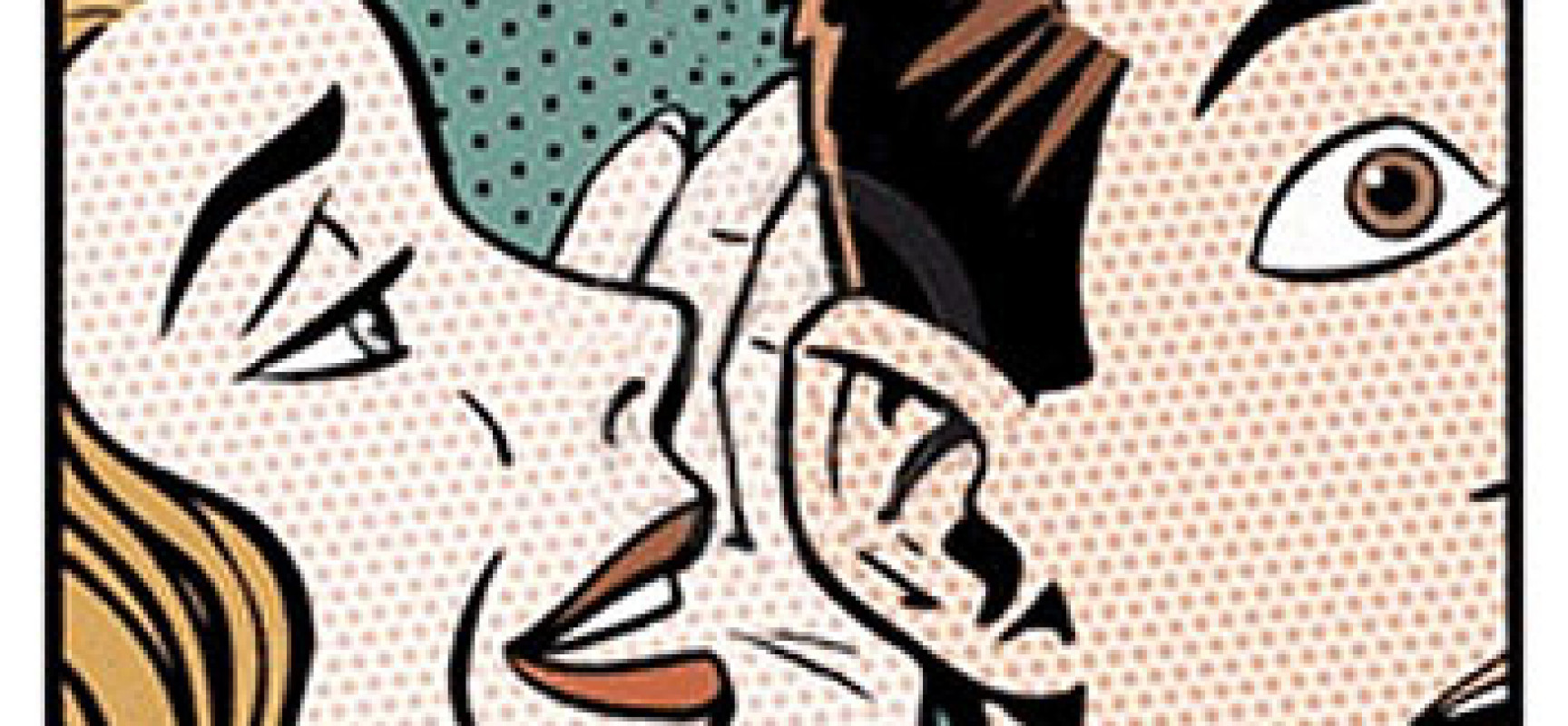A bird call. A jackhammer. Your name being called out. Humans hear on the order of tens of thousands of sounds a day. But there’s a vast difference between hearing and listening.
Psychologists have theorized about the benefits of a particular form of listening called active listening in which we listen without judgement, try to hear something from the speaker’s point of view, and let the speaker know that we understand the content of what he or she is saying. This method of listening is used in conflict resolution and to improve interpersonal communication from the boardroom to the bedroom. Advocates say that practicing active listening not only builds deep positive relationships but can change the attitude of the listener.
For our book, we heard about how listening—something we may associate with a passive pursuit—was actually one of the top ten strategies for success from people who have achieved mastery in their fields. We heard about how a former chief FBI hostage negotiator, Gary Noesner listened to perpetrators; how high school teacher Erin Gruwell listened to her at-risk students (who went on to write a bestseller “The Freedom Writers Diaries“); how award-winning actress Laura Linney listened to her scripts.
This made an impression on us. Is it possible, we wondered, to really become a better listener? To tune in to listen not just to validate someone or something, but to listen to learn?
Here’s a recent example from Camille:
A couple of weeks ago I was riding home on our bike with our daughter (who just turned nine). The bike is tricked out with a banana seat on the back for her to sit on. Josh, or I, rides our daughter to and from school each day, and of course all around the neighborhood.
This particular day was Election Day. Almost home, just outside of our building, we ran into a neighbor who said he was just going to vote.
“Oh, I voted this morning,” I say.
“Great. Any suggestions?” he asks.
Well the truth is, like a lot of Americans, I hadn’t paid nearly enough attention to the midterm elections. (Which now, of course, I regret!) But, I tell the neighbor, there is a local guy who’s running who I heard about from a friend and voted for.
“Oh,” my neighbor says, “who’s the local guy?”
“Alex,” I tell him. Then I realize that not only don’t I remember Alex’s last name, I don’t remember his political party (he was running as an Independent). I don’t even remember which office he was running for. I come up with a workaround. I’m starting to draw a big rectangle in the air when my daughter says, “Mama is it Alex Meadows?” I respond with one of those cliché parent things, like “Not now, honey…..” BECAUSE I’M BUSY DRAWING AN AIR BALLOT TO SHOW OUR NEIGHBOR HOW TO VOTE FOR SOMEONE I KNOW VERY LITTLE ABOUT.
Way down in the right hand corner of my air ballot, I draw a circle where Alex Whoever’s name will be. “Look for Alex’s name right around here,” I tell the neighbor who’s nodding but clearly registering confusion. My daughter must notice this, too, because again she asks, “Mama, is it Alex Meadows?”
This time, I think I actually pretend not to hear her.
Finally, the neighbor says goodbye and wanders off to vote. And maybe to regain some of the self-efficacy I’ve lost in this little exchange (and to quiet that voice in my head that’s screaming: Lame!), I turn my attention to getting us—me, my daughter—and the bike inside the building with speed and efficiency. With the bike angled just so, I’m fishing for my keys in my bag when my daughter asks again, “Mama, is it Alex Meadows?”
I’m about to deflect for a third time when I think, “Wait a minute. I’m not being a very good listener here.” (Or parent for that matter.) So I stop. I stop fishing for my keys. I stop listening to the self-critic softly berating me for being an election ignoramus. I stop angling the bike for immediate building entry. I turn my attention to my daughter. I look her in the eye. I’m going to listen without judgment. I’m going to hear from her point of view. I’m going to show her I’ll try my best to understand the content of what she’s saying.
“Honey,” I say maybe a little too sweetly, she eyes me a bit suspiciously, “‘Alex Meadows’ sounds to me…kind of like a made up name. Why do you think it’s Alex Meadows?”
“Well,” my daughter says, “lately, when we’ve been riding around on the bike, I keep seeing these stickers and signs on the telephone poles with a photo of a guy and above him the words: “Vote for Me for Assemblymember, I’m Alex Meadows.”
Proof of why active listening works.
Order “The Art of Doing” here. Signup for “The Art of Doing” free weekly e-newsletter. Follow us on Twitter. Join “The Art of Doing” Facebook Community. If you’ve read “The Art of Doing” please take a moment to leave a review here.
This post was originally delivered as a talk.

